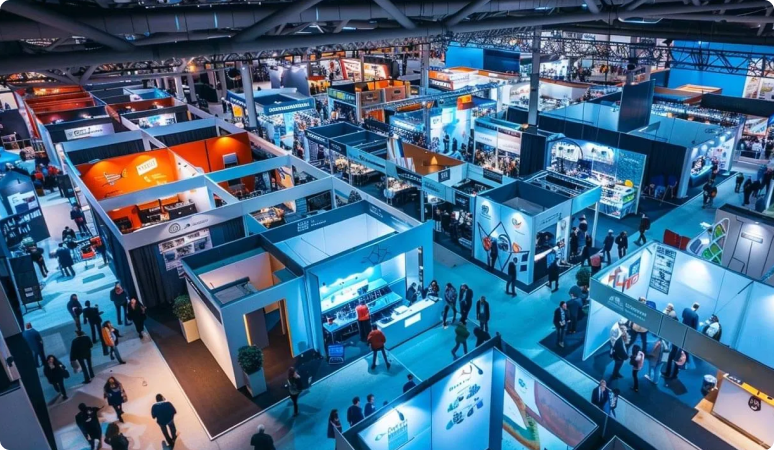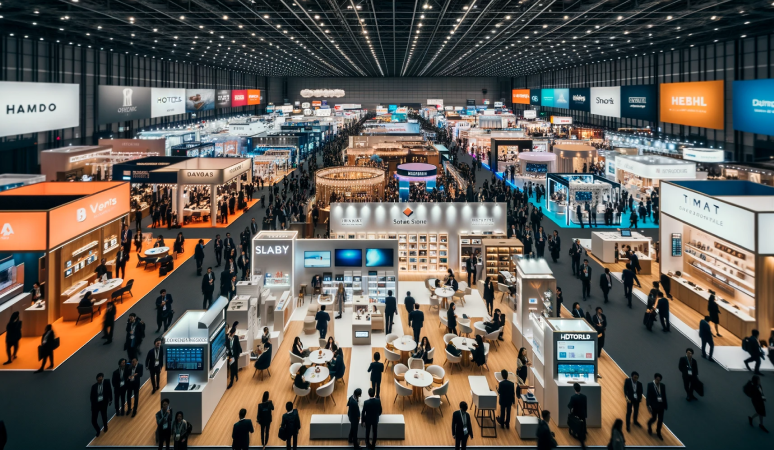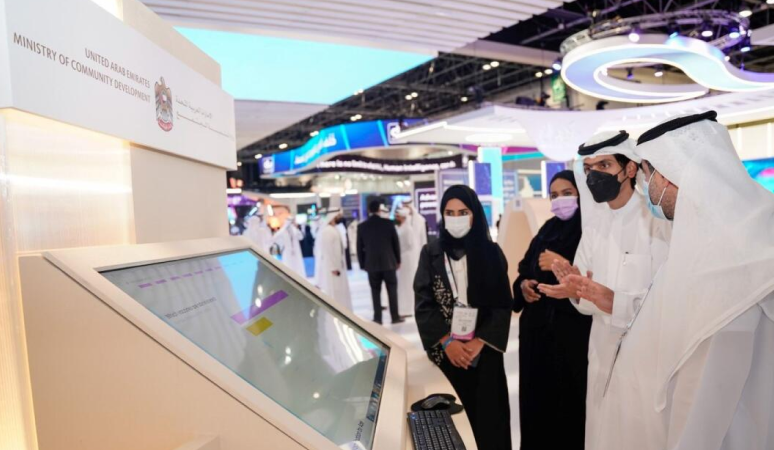Personalized User Experiences in...
Dubai, UAE – July – Personalized user experiences...

Artificial Intelligence (AI) is rapidly reshaping the landscape of consumer technology, with automation being one of its most transformative impacts. From self-driving cars to smart home assistants and robotic appliances, AI is enabling a new era of convenience, efficiency, and innovation in the everyday products we use. As we move into 2025, AI-powered automation is set to redefine how we interact with technology, making it smarter, more intuitive, and increasingly integrated into our daily lives.
In recent years, AI has transitioned from a niche technology to a mainstream driver of innovation. AI’s ability to process large volumes of data, learn from patterns, and make decisions in real-time is unlocking new possibilities across numerous industries. In consumer technology, automation powered by AI is becoming a core feature of devices, making them more efficient, adaptable, and personalized.
Today, consumers interact with AI in many forms—smartphones, home assistants, fitness trackers, and even entertainment platforms. The future, however, promises even more sophisticated applications where AI doesn’t just respond to user commands but anticipates needs, automates tasks, and transforms everyday experiences.
One of the most exciting developments in AI-driven automation is in the realm of smart homes. The rise of smart devices like thermostats, lights, refrigerators, and security cameras has made it possible to create fully automated living spaces that anticipate and respond to our needs. AI plays a crucial role in this ecosystem, using data from sensors and voice assistants to make real-time decisions that improve comfort, energy efficiency, and security.
For instance, smart thermostats like Nest or Ecobee use AI to learn a user’s schedule and adjust home temperatures automatically, reducing energy consumption without sacrificing comfort. Similarly, AI-driven lighting systems can adapt to the time of day, adjusting brightness and warmth based on user preferences or even your current activity, such as reading or watching TV.
AI is also improving the safety and security of smart homes. Intelligent surveillance systems can detect unusual activity, recognize faces, and even alert homeowners to potential threats. Automated door locks, voice-activated systems, and smart appliances are making daily tasks easier and more secure than ever before.
Voice assistants such as Amazon’s Alexa, Google Assistant, and Apple’s Siri have become essential tools for many consumers, providing quick access to information and streamlining daily tasks. But AI in personal assistants is rapidly evolving to become much more than just a voice-activated service.
The next generation of AI assistants will be able to understand context, make smarter recommendations, and handle increasingly complex tasks. These personal assistants will not only respond to voice commands but also proactively manage tasks across various devices. For example, a smart assistant could schedule meetings, manage home lighting, adjust room temperature, and even order groceries—all based on your preferences and past behavior.
AI’s ability to process and understand natural language is also improving. Personal assistants will increasingly understand nuanced language, making interactions feel more natural and intuitive. Imagine a voice assistant that not only answers your question but also adapts its responses based on your tone and emotional state, creating more empathetic and engaging conversations.
Autonomous vehicles are another exciting frontier for AI-powered automation. Self-driving cars, once a futuristic concept, are now moving closer to reality, with several companies testing fully autonomous vehicles on public roads. AI is at the heart of this technology, processing data from sensors, cameras, and maps to make real-time decisions that enable the vehicle to navigate roads safely and efficiently.
Beyond just driving, AI in autonomous vehicles is also making driving experiences more personalized. From adjusting seat positions and climate control based on individual preferences to suggesting optimal routes, AI will be able to cater to each driver’s needs, offering convenience and comfort on the road.
As the technology matures, we may also see AI-powered public transportation systems, such as autonomous buses and ride-hailing services, further revolutionizing how we travel.
Robotics is another area where AI and automation are making significant strides. AI-powered robots are already finding their place in the home, with robotic vacuum cleaners like Roomba leading the way in household chores. However, the potential for AI-driven robots goes far beyond cleaning.
The future of robotics promises highly capable machines that can assist with a wide range of tasks, from cooking and home repairs to elderly care and pet monitoring. These robots will not just perform tasks based on simple commands, but will be able to learn from their environment, anticipate needs, and adapt to various situations, all while becoming increasingly autonomous.
In healthcare, AI-driven robots are already being used for surgery, rehabilitation, and patient monitoring. These robots can assist doctors by performing complex procedures with greater precision and consistency, potentially reducing human error and improving patient outcomes.
AI is not only influencing the devices we use but is also reshaping how we shop and consume goods and services. From personalized recommendations on streaming platforms like Netflix to AI-driven product suggestions on e-commerce websites like Amazon, AI is revolutionizing the shopping experience by understanding consumer preferences and offering tailored experiences.
Retailers are leveraging AI to predict demand, optimize supply chains, and even automate customer service through chatbots. AI systems can analyze customer behavior in real time, adjusting marketing strategies and promotions based on what consumers are most likely to purchase.
In the food and beverage industry, AI is being used to automate everything from production and inventory management to personalized nutrition recommendations. Smart kitchen appliances, such as refrigerators that track your grocery stock and suggest recipes, are becoming more commonplace, making meal planning more efficient and reducing food waste.
While AI-powered automation offers countless benefits, it also presents challenges, particularly in terms of job displacement, privacy, and security. As machines become capable of handling more tasks traditionally performed by humans, the workforce may undergo significant changes. It’s crucial for governments, businesses, and society to address the potential impact of automation on employment and explore ways to ensure a fair and inclusive transition.
Additionally, with AI systems collecting vast amounts of personal data, ensuring the privacy and security of consumer information is paramount. As more devices become connected, safeguarding against cyberattacks and misuse of data will be a top priority.
The future of AI and automation in consumer technology is bright, with new innovations on the horizon that will make our lives more convenient, efficient, and connected. As AI continues to advance, we can expect even smarter devices, more personalized experiences, and more seamless integration between technology and daily life.
Whether it’s through AI-powered personal assistants, autonomous vehicles, or smarter homes, automation will continue to play an increasingly central role in consumer technology. The challenge will be ensuring that these advancements are used responsibly and ethically, with a focus on improving the quality of life for all. As AI continues to evolve, its potential to revolutionize the way we live, work, and interact with technology is only just beginning

Dubai, UAE – July – Personalized user experiences...

Dubai, UAE – August – In 2024, sustainability...

Dubai, UAE – September – Healthcare technology is...